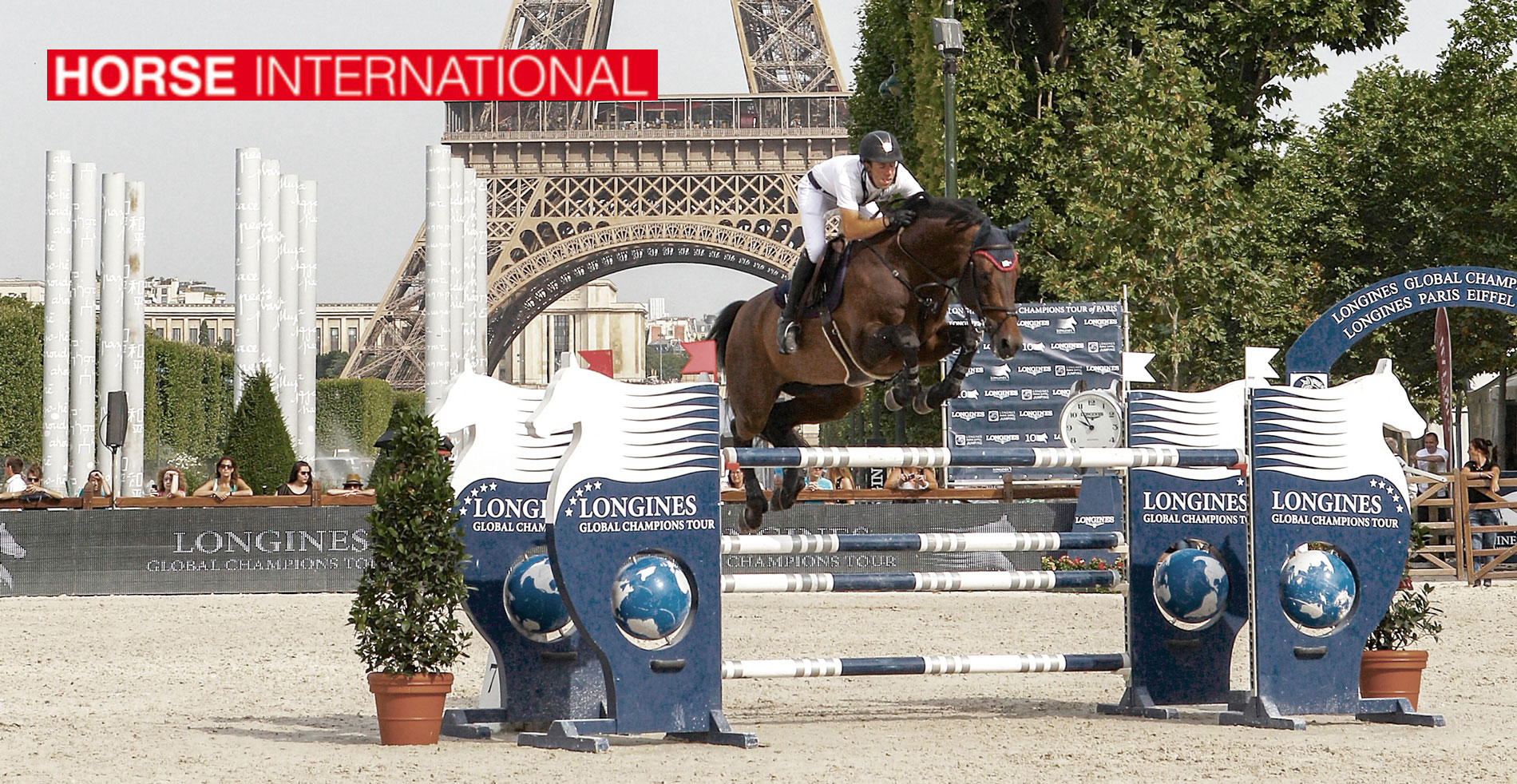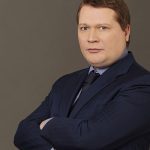
European US Asian Equine Lawyers is an Alliance Group founded by Schelstraete Holding B.V. with its head office in Oisterwijk, the Netherlands. The Alliance Group has independent partners in Europe, Asia and the United States and is still growing. The Alliance Group can help clients world-wide with contracting, purchase assistance, Sports law, FEI Doping cases and Litigation. Its our pleasure to introduce you to the first three members of the Alliance Group. In the next issue of Horse International the other members will be introduced to you.
POLLY HEY-PANOS, HEY & HEY
SAN FRANCISCO-USA

Which other fields of law do you often see applied together with equine law?
Civil litigation is the most prevalent in our practice. Often a person does not have a quali ed equine attorney involved in their initial deal and when they come to us the only option left is litigation. Other elds of law that intersect with equine law are employment, immigration, and real estate law.
How come you chose to specialize in equine law?
It was a way for me (Polly) to combine my two passions, horses and the law. There was a huge need for an equine law rm in our area. The horse industry is a multimillion- dollar business in California alone and was an industry that was not being appropriately serviced. I grew up as a trainer’s daughter and saw many horse transactions go south. I have always maintained that it is much easier to prevent a problem than it is to x one. I counsel my clients on a daily basis on the importance of written contracts and transparency.
What are the ties of the rm to the equine world?
Polly grew up in the industry as a trainer’s daughter and saw first hand the ups and downs of the industry. Randy grew up on a ranch and has been involved in horses his entire life and more recently has been much more involved in show jumping.
Why do you find it important to have lawyers specializing in equine law?
First and foremost the horse industry is unique. It does not operate like any other industry around. There seems to be different rules and codes of conduct. An attorney who understands the horse industry is going to be able to better advise a client. They will be more efficient with their time and the drafting of contracts. The culture of the industry is also quite different. To be effective, an equine lawyer must to convey this unique culture to outsiders such as judges, mediators, and arbitrators.
What are the common issues arising in the eld of equine law?
We see a lot of breach of contract cases, defective product, lack of transparency, failure to disclose past health or training issues, and liability issues. The single most common issue we see is people entering into a deal based on a handshake and not memorializing their agreement with a written contract.
What has been one of your most challenging cases?
Due to con dentiality issues we cannot describe most of our very colorful cases. However, we’ve had multiple cases in which clients have purchased horses in foreign countries, over the Internet, site unseen and had something go wrong.
Longest/shortest case?
Often we can take care of a problem with one simple phone call because we know the players in the industry. However some civil litigation cases can last upwards of two years.
How do you see equine law has developed through the last years?
Here in the United States, we have seen an increase in laws requiring transparency in horse related transactions.
How do you see the eld developing in the future?
The interaction between the equine industry, the Internet and individual buyers is something that is always changing and evolving.
Which issues within equine law do you see appear (more often) in the coming years?
Disputes over defects in horses I think this will never go away. People are always overstating a horse’s ability or expected performance.
How long have you been part of the Alliance?
We just joined the Alliance.
Why is it important to have a worldwide alliance of Equine Lawyers?
As the sport continues to grow, more and more people are going outside of their home area to purchase, show, and train their horses as a result there are many more chances for something to go wrong in someplace other than home. Having a worldwide alliance allows the attorneys to be able to share ideas and how those might be implemented in different jurisdictions. When Randy was starting his legal career, it was very rare to see a horse bred in Europe competing in California, now that is almost the norm.
How does your client benefit from the firm being part of the alliance?
Having a network of attorneys in different areas benefits my clients because they are transacting business worldwide and thus now have resources to support their business in many countries. The most important thing my firm does is protect clients from litigation and from horse deals going south by having proper documents drawn up.
JEAN-PHILIPPE QUERNER, D’ORNANO QUERNER DHUIN
PARIS-FRANCE

How many lawyers does your firm comprise?
12 lawyers.
Which fields of law does your firm specialize in?
Equine and business law.
Who are your ‘most common clients’ in the equine law practice?
The vets.
Which other fields of law do you often see applied together with equine law?
Corporate law and civil law.
How come you chose to specialize in equine law?
Being a rider and a breeder, I have mixed my passion and my job very naturally.
What are the ties of the firm to the equine world?
Several of the lawyers of our firm are riders and/or own horses.
Why do you find it important to have lawyers specializing in equine law?
The experience and the multiplication of cases make it possible to develop a true skill.
What are the most common issues arising in the eld of equine law?
Hidden defects in the sale of a horse and the questioning of veterinary liability and doping cases.
What has been one of your most challenging cases?
The liability of a veterinarian who operated the wrong horse jamble!
Longest/shortest case?
4 years / a few days (negotiation).
How do you see equine law has developed through the last years?
The financial stake of the business has increased a lot.
How do you see the eld developing in the future?
The establishment of networks of equine lawyers turned towards international will be relevant.
Which issues within equine law do you see appear (more often) in the coming years?
Litigation relating to the cross- border trade.
How long has your firm been a part of the EUAEL alliance?
1 year and 6 years of cooperation with Mr. Luc Schelstraete’ firm.
Why is it so important to have a worldwide alliance of Equine Lawyers?
Because of the increase of litigation relating to the cross-border trade.
How does your client bene t from the rm being a part of the EUAEL alliance?
They bene t from a turnkey service regardless of the cross-border aspects of a file.
JEREMY KLEINFELD, DKLM
LONDON-ENGLAND

How many lawyers does your firm comprise?
21 solicitors plus trainees and paralegals.
Which fields of law does your firm specialize in?
Commercial law.
Who are your ‘most common clients’ in the equine law practice?
That would be the buyers.
Which other fields of law do you often see applied together with equine law?
The commercial aspects of the equine industry.
How come you chose to specialize in equine law?
Acting for commercial clients whose business and private interests included ‘equine’ issues led to the creation of a niche interest.
What are the ties of the firm to the equine world?
Membership of EUAEL and acting as above and for clients who own polo clubs and stables.
Why do you find it important to have lawyers specializing in equine law?
As a niche market it is important to know the specifics of the industry so that appropriate and focussed advice can be given.
What are the most common issues arising in the field of equine law?
All commercial issues arising from ownership of horses and associated business interests including the ownership of equine businesses.
What has been one of your most challenging cases?
The majority of work arises from non-contentious commercial work and this involves multi-jurisdictional issues on ownership and tax issues.
How do you see equine law has developed through the last years?
The growing need for greater specialisation of equine issues and the greater awareness by clients of issues arising in transactional work, including the need for focused due diligence.
How do you see the field developing in the future?
Growing need for organisations such as EUAEL as more work has cross jurisdictional aspects and the need to have “a team” who can represent client interests.
Which issues within equine law do you see appear (more often) in the coming years?
Cross jurisdictional particularly as the UK member considering the possible effects of Brexit on the equine industry such as the ability to move horses in and out of
the UK.
How long has your firm been a part of the EUAEL alliance?
Since incorporation in 2016.
Why is it so important to have a worldwide alliance of Equine Lawyers?
To be able to offer clients a one stop shop with the knowledge that their interests will be best served by the use of fellow “equine law” specialists.
How does your client benefit from the firm being a part of the EUAEL alliance?
To be able to offer clients a one stop shop with the knowledge that their interests will be best served by the use of fellow “equine law” specialists. Often horses will be moved across borders with each country have their own domestic laws and the ability to call on local knowledge.